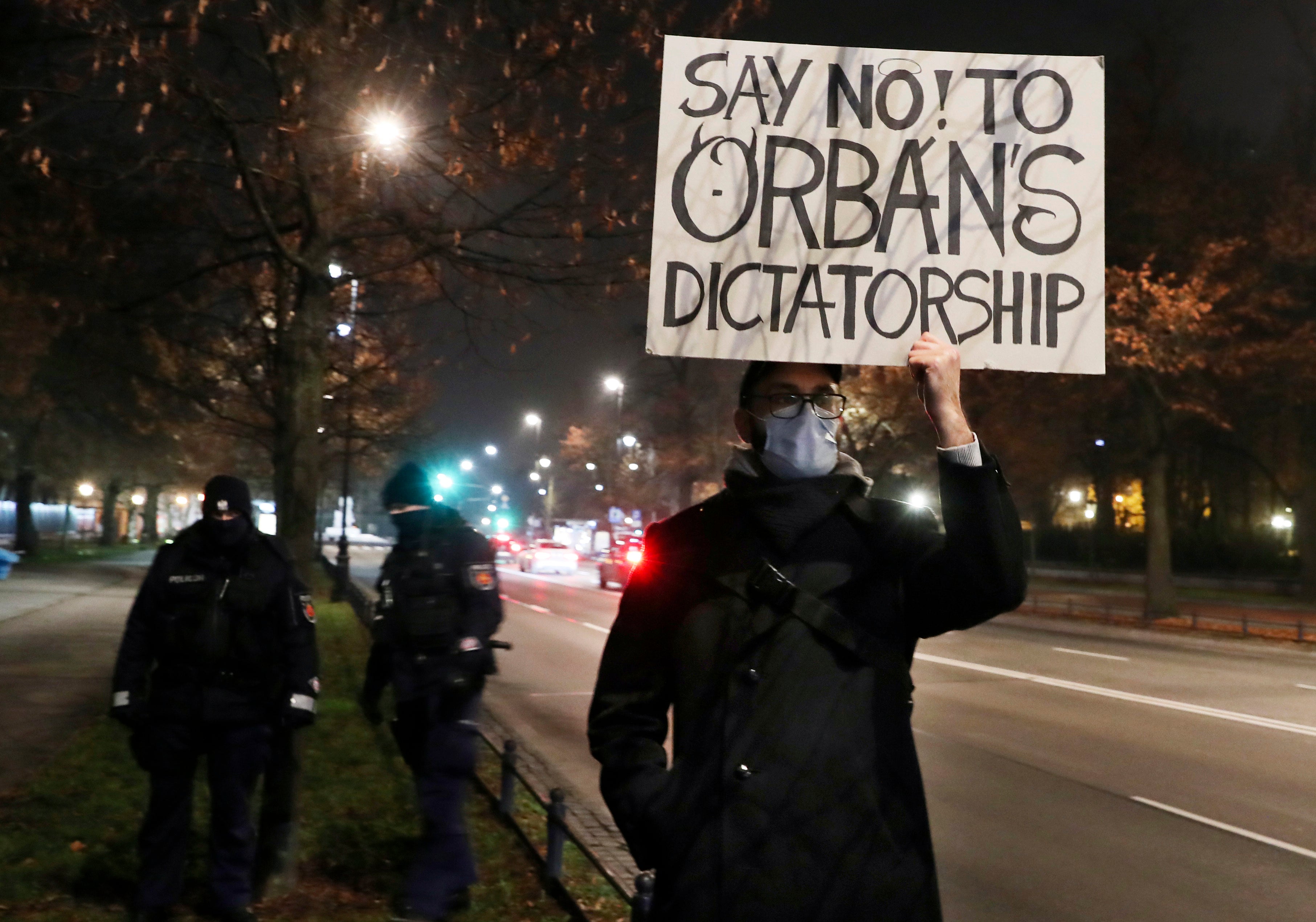Orban calls EU legal action against LGBT law ‘legalised hooliganism’
The Hungarian PM will allegedly use the LGBT row with the EU as a political lever in next year’s elections

Your support helps us to tell the story
From reproductive rights to climate change to Big Tech, The Independent is on the ground when the story is developing. Whether it's investigating the financials of Elon Musk's pro-Trump PAC or producing our latest documentary, 'The A Word', which shines a light on the American women fighting for reproductive rights, we know how important it is to parse out the facts from the messaging.
At such a critical moment in US history, we need reporters on the ground. Your donation allows us to keep sending journalists to speak to both sides of the story.
The Independent is trusted by Americans across the entire political spectrum. And unlike many other quality news outlets, we choose not to lock Americans out of our reporting and analysis with paywalls. We believe quality journalism should be available to everyone, paid for by those who can afford it.
Your support makes all the difference.Hungary prime minister said on Friday an infringement action by the EU amounts to “legalised hooliganism” in a fresh escalation of the row with Brussels over the rights of LGBT people.
Viktor Orban told state radio on Friday the EU action was “legalised hooliganism... The European Commission’s stance is shameful.”
On Thursday, the EU took legal action in reaction to a new law which bans schools from using materials deemed as promoting homosexuality or gender change, which Orban has described as a child-protection issue.
The law also forbids sharing any data with under 18s that the government could deem as promoting homosexuality or gender change.
In explaining the official stance, a Hungarian government spokesperson said after passing the law: “There are contents which children under a certain age can misunderstand and which may have a detrimental effect on their development at the given age, or which children simply cannot process, and which could therefore confuse their developing moral values or their image of themselves or the world.”
On the same day, the European Union’s executive also opened a case against Poland after some of its regions and municipalities declared themselves “LGBT-ideology free zones”.
Orban said the debate offered Hungarians a glimpse into “European life” - into what went on in schools in Germany, reiterating that Hungary would not let LGBT activists “march up and down” in schools promoting what he called sexual propaganda.
Rights groups have rallied against the legislation, which the Commission head Ursula von der Leyen has called a disgrace.
Hungary and Poland have two months to respond, failing which the Commission may refer them to the EU’s Court of Justice.
The EU’s legal action could also have an impact on the EU’s post-pandemic funding for Budapest. Orban on Friday also predicted another clash, which have been withheld by Brussels but which he said Hungary would eventually get.
On Friday, Orban challenged Brussels over EU recovery funds, saying that there will be debate about the EU funds, but “We will get those funds in the end.”
The Hungarian national assembly has passed the new legislation by 157 votes to one after the ruling Fidesz party guaranteed the backing of the far-right Jobbik party to pass the law.
The anti-LGBT campaign, which Orban’s government has stepped up over the past year, looks likely to feature prominently on his political platform ahead of a potentially tough national election next year.
In the past two weeks, huge blue billboards have appeared across Hungary bearing slogans such as: “Have you been annoyed with Brussels?” and “Are you afraid your children will face sexual propaganda?”
Orban, a nationalist who has repeatedly crossed swords with Brussels since he took office in 2010, said EU authorities were trying to impose their will on Hungary over how children should be raised.
The campaign was widely seen during an EU summit in June as a “cultural battle”, with leaders voicing concerns over the effect of Orban’s political ambitions on the EU cohesion, European values and the respect of the LGBT persons’ rights.
Additional reporting by Reuters
Subscribe to Independent Premium to bookmark this article
Want to bookmark your favourite articles and stories to read or reference later? Start your Independent Premium subscription today.
Join our commenting forum
Join thought-provoking conversations, follow other Independent readers and see their replies
Comments